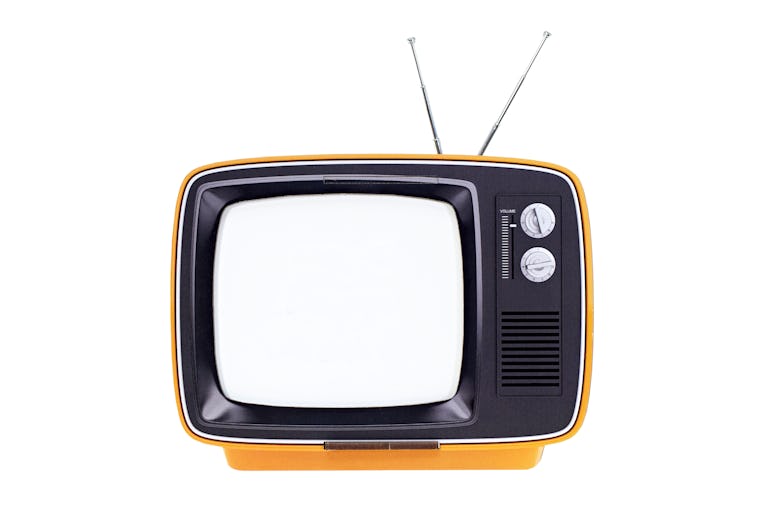There are roughly a million streaming services now — more than any normal person could reasonably pay for or keep up with. Netflix, Hulu, Apple TV+, Prime Video, Disney+, Paramount+, HBO Max, Peacock — if you paid for all of them, you’d be both broke and incredibly boring.
At the same time, our need for near-endless amounts of good (or at least pleasantly distracting) TV is greater than ever. Between COVID, spiralling climate change, and the solemn duty we all have to slack off on the bosses’ dime while working from home, we’re going to be spending more and more time inside.
So what’s the answer? If you need all this TV, and you can’t afford it, how are you going to get it?
Easy: by stealing it. Steal your TV shows. All of them.
Before you object, you should know a few things. It’s really easy, it’s kind of fun, and it’s a victimless crime. In fact, it’s a great way to take a tiny slice of the world back from the people who own most of it.
Yes, you have to trawl insanely skeezy Albanian sites that infect your computer with crypto-mining malware. Yes, the pop-ups you’ll be forced to wade through will contain some horrifying, physics-defying CGI porn. Yes, you might click the wrong button and accidentally join that new ISIS.
And yes, technically it’s “illegal,” but only in the way that corporate wage theft and oil spills are illegal. There’s a vanishingly small chance you’ll ever be punished for it.
Besides, the alternative — paying for it — is so much worse. All the major streaming services are owned by gigantic omni-corporations or billionaire space cowboys. A substantial amount of humanity’s collective creative output is now owned by a few dozen techbro gremlins whose idea of art is remaking fucking Spiderman again.
Giving Jeff Bezos or Walt Disney’s frozen head even more money at this point is just giving up. Stealing their shit is one of the few ways we can stage a tiny rebellion against a future where we all hide inside from the latest weather event by bingeing Real Housewives of Olympus Mons on MuskTV.
The glory days of using the internet to steal content were the early- to mid-2000s. Millions of kids used peer-to-peer services like Napster, Kazaa, and LimeWire to download MP3s named things like “L1nK1nG pArK___NuMb.exe” and absolutely brick the family computer in the process. They were the first generation of people to grow up with the internet as something you could actually spend time on and use in interesting ways. It was slow and janky and still half-formed, but it was also incredibly exciting. The idea that you could get stuff for free, in forbidden and slightly dangerous ways that baffled your parents and entire industries, was part of the reason the internet used to feel like a place of possibility — somewhere where old power structures could be turned upside-down, or ignored altogether.
Along with the rest of the internet, that idea went to hell somewhere in the Obama years. As lawmakers got wise and services like iTunes and Spotify found exciting new ways to underpay artists, pirating and torrenting became something that only guys who never shut up about Julian Assange did.
Except in Australia, a country with a proud and rich history of piracy. Even before the internet, governments were pumping out bizarre, overly dramatic ad campaigns trying to convince people that owning a bootleg VHS of Shrek would bring about the Death of Art. But, like everything else about Australia, Rupert Murdoch made things a lot worse.
Back when people weren’t embarrassed to admit they watched Game of Thrones, the only legal way you could get it in Australia was through Foxtel, Murdoch's pay-TV package. Foxtel is expensive, and also garbage, but before streaming, it had a monopoly on Australia’s pay-TV market. Murdoch single-handedly derailed the Australian government's plan to install high-speed internet infrastructure across the continent because he didn't want Foxtel to face competition from streaming.
When Game of Thrones took off, Australians had two choices: pay upwards of $60 a month ($60 a month) to watch the swords-and-rape show on Foxtel, or steal it. Wonderfully, absolutely everyone decided to steal it. It became a national tradition — each new season of GoT saw Australia topping global piracy charts. It got so bad that the U.S. Ambassador publicly begged everyone to stop. (No one listened.) The first episode of the last season was illegally downloaded or streamed by 1.1 million Australians, or roughly five percent of the population.
Urged on by massive political donations from media giants, the government eventually passed sweeping anti-piracy laws that blocked hundreds of piracy websites and removed them from search engine results. All of which did precisely jack shit to stop internet piracy in Australia, which has come roaring back during the country’s endless, pain-in-the-arse lockdowns.
Stealing TV has made my current lockdown grimly bearable, rather than insanity-inducing. Instead of paying whichever loser runs Apple at the moment, I get Ted Lasso for free off some site that changes its host country every few weeks. Right now it's in Tonga. I watch all my sports on two weird, sketchy websites that are Batman- and Joker-themed, for absolutely no reason I can figure out. I can watch Belarusian field hockey if I want. I never will, but it’s nice that I could.
So give it a whirl. Get a VPN if you’re nervous. Relearn the lost art of figuring out which WATCH HERE button is the real one and which will send your credit card info to a teenager in Transnistria. Go steal some TV from a rich asshole.
And to the Australian regulators reading this: this is satire. Go arrest the politician sending mass unsolicited texts about anti-vax conspiracies.
Alex McKinnon is a writer based in Sydney.
